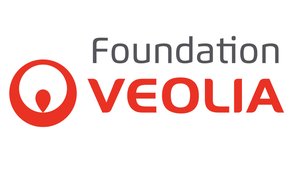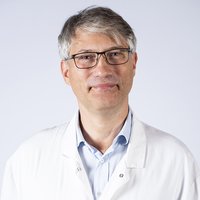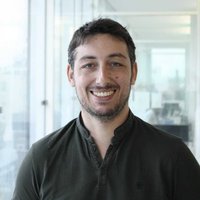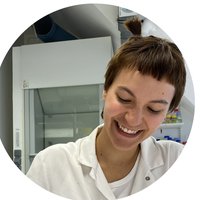Water Borne Infectious Diseases
- Duration: 8 weeks
- Effort: 20 hours
- Pace: ~2h30/week
- Languages: English and french
What you will learn
At the end of this course, you will be able to:
- Identify Public Health issues related to fresh water, especially in developing countries.
- Describe the main bacteriological, viral and parasitic diseases transmitted by ingestion or contact with fresh water.
- Develop preventive and corrective measures to reduce the risk of transmission of infectious diseases through water.
Description
Water is of vital importance to humanity for nutrition and hygiene. However, more than 2 billion people, mainly in developing countries, do not have access to safe drinking water or adequate sanitation and are at risk of potentially severe infectious diseases linked to the presence in water from bacteria, viruses, or parasites. This explains, for example, the death by acute diarrhea of 1.4 million children each year and how, in the 21st century, a cholera pandemic persists in some continents.
This MOOC explains how water is polluted by microbes, indicates some regional, sometimes socio-anthropological, peculiarities that favor water pollution, and describes the most common infectious diseases transmitted by ingestion or contact with water.
The MOOC develops why making water consumable and ensuring satisfactory sanitary conditions is an “intersectoral” work bringing together health actors, politicians and engineers as the GTFCC (Global task force for cholera control). Ensuring the availability and sustainable management of water and sanitation for all is one of WHO's 17 goals for the coming years (https://www.who.int/health-topics/sustainable-development-goals#tab=tab_3).
Format
The MOOC is organized into 6 chapters. Each chapter has 1 to 8 sessions. In each session, you will find an 8 to 15 minute video and a multiple choice question test to help you check your understanding. There are 2 to 16 multiple choice questions at the end of each chapter depending on the number of sessions and a certification exam.
The videos are in English, with English and French subtitles.
Prerequisites
A good scientific level is recommended to follow this MOOC (license in life sciences).
Assessment and certification
To follow this course, you can choose between two options:
- The Discovery Course gives access to videos, quizzes and discussions in the forum. No badge is issued for this course. Registration is free.
- The Qualifying Course leads to a certificate. In addition to the activities of the Discovery Course, you will have to take a one-hour supervised distance learning exam, consisting of 30 multiple-choice questions (MCQs) and obtaining 18 correct answers. The registration fee for the Qualifying Course is 150€.
Successful completion of the Qualifying Course gives you the opportunity to apply for the Institut Pasteur Online Diploma of Infectious Diseases (DNM2IP), which consists of 5 certificates to Institut Pasteur MOOCs on infectious diseases. To learn more, visit the Institut Pasteur's web page dedicated to this diploma.
Course plan
- C1-1 : Water as a causing factor of infectious diseases // Sara Romano-Bertrand (Montpellier Hydrosciences, CHU Montpellier)
C1-2 : What makes water a source of infectious diseases ? : Chloé Dupont (Montpellier Hydrosciences, CHU Montpellier)
C1-3 : Water-borne diseases in Africa // Babacar Ndiaye (IP Dakar)
C1-4 : Technical and environment déterminants of drinking water quality in low-income countries // Alexandra Bastaraud (IP Madagascar)
C1-5 : Water-borne infectious diseases in French Guiana // Stéphanie Raffestin (IP Cayenne)
C1-6 : Specific problems of water contamination in South-East Asia // Navin Sreng (IP Cambodge)
C1-7 : Local perception of diseases transmission. Interactions between individuals and their environment // Chiarella Mattern (IP Madagascar)
C1-8 : Perceptions on water quality in a poor neighborhood of Antananrivo, Madagascar // Elliot Rakotomanana (IP Madagascar)
- C2-1 : Cholera // Marie-Laure Quilici (Institut Pasteur)
C2-2 : Typhoid fever // François-Xavier Weill (Institut Pasteur)
C2-3 : Leptospirosis // Mathieu Picardeau (Institut Pasteur, CNR)
C2-4 : Legionellosis // Carmen Buchrieser (Institut Pasteur)
C2-5 : Campylobacter infection // Francis Megraud (Bordeaux)
C2-6 : Non-tuberculosis mycobacteria like water // Jean-Louis Herrmann (APHP)
- C3-1 : Rotavirus // Jelle Matthijnssens (Louvain)
C3-2 : Hepatitis A and E // Anne-Marie Roque-Afonso (Université Paris-Saclay)
C3-3 : Poliomyelitis, a viral disease almost eradicated // Francis Delpeyroux (Institut Pasteur)
C3-4 : Shellfish and human viruses // Soizick Le Guyader (IFREMER)
- C4-1 : Schistosomiasis // Jean Coulibaly (Côte d’Ivoire)
C4-2 : Fasciolasis // Sylvie Hurtrez (Université de Montpellier, France)
C4-3 : Amoebiasis (E.histolytica), dysentery and liver abscess // Nancy Guillen (Institut Pasteur)
C4-4 : Strongyloidiasis and Hookworm infections // Magalie Demar (CH Cayenne)
C4-5 : Giardasis, a neglected water-borne infectious disease // Isabelle Florent (MNHN)
C4-6 : Cryptosporiasis // Boris Spielben (Pennsylvany University)
- C5-1: Water and insect vectors // Anna-Bella Failloux (Institut Pasteur)
- C6-1 : Wastewater-based epidemiology (WBE): the example of COVID-19 // Adèle Lazuka (Fondation Veolia)
C6-2 : The rôle of agencies and NGOs // Pierre-Yves Oger (UNICEF HQ)
C6-3 : The rôle of agencies and NGOs // Audrey Séon (Agence Française de Développement)
C6-4 : Changing paradigm to eliminate cholera as a public health problem // Didier Bompangue (University of Kinshasa, République Démocratique du Congo)
C6-5 : The need for a multisectoral approach to address waterborne infectious diseases // Thierry Vandevelde (Fondation Veolia Global Alliance Against Cholera)
Course team
François-Xavier WEILL
Categories
Maël BESSAUD
Categories
Dominique Franco
Categories
Louna FRUCHARD
Categories
Organizations

With the support of
License
License for the course content

Attribution-NonCommercial-NoDerivatives
You are free to:
- Share — copy and redistribute the material in any medium or format
Under the following terms:
- Attribution — You must give appropriate credit, provide a link to the license, and indicate if changes were made. You may do so in any reasonable manner, but not in any way that suggests the licensor endorses you or your use.
- NonCommercial — You may not use the material for commercial purposes.
- NoDerivatives — If you remix, transform, or build upon the material, you may not distribute the modified material.
License for the content created by course participants

Attribution-NonCommercial-NoDerivatives
You are free to:
- Share — copy and redistribute the material in any medium or format
Under the following terms:
- Attribution — You must give appropriate credit, provide a link to the license, and indicate if changes were made. You may do so in any reasonable manner, but not in any way that suggests the licensor endorses you or your use.
- NonCommercial — You may not use the material for commercial purposes.
- NoDerivatives — If you remix, transform, or build upon the material, you may not distribute the modified material.






